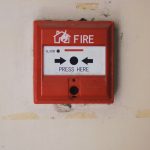Fire sprinkler systems reduce particulate matter, harming the environment and aggravating respiratory diseases. These particles are created during the burning of certain materials. Fire sprinklers also reduce polluted and toxic runoff. As a result, fire sprinklers are a good investment for both property and the environment. These systems are installed to prevent fires and other hazards. They are the most effective way to protect property from damage and save lives.
Protects Property
Fire sprinkler systems are one of the best ways to protect your property against fire. They can react quickly to a fire and can contain it before the fire department can arrive. These systems also reduce greenhouse gas emissions. When sprinklers are installed in your home, the water needed to fight fire is significantly reduced. In addition to lowering property damages, they can save lives. These systems are not only essential to protect your property and loved ones, but they are also beneficial for the environment. The people who help design, fabricate, install sprinklers, and repair fixed water-type and unique hazard suppression systems are usually covered by Fire sprinkler contractor insurance.
Most sprinkler systems are designed according to the area and density of the building. Fire hazard is based on the use of the building and the contents. Three general hazard classifications are light risk, ordinary hazard group 1, and hazard group 2. The area of a sprinkler system is designed to cover the most susceptible areas during a fire. The density of the sprinkler system is the amount of water per square foot of floor area.
Reduces Water Runoff And Pollution
Runoff is a common problem threatening our water supply by transporting pollutants from land to nearby bodies of liquid. Its primary source is human and natural activity and includes a variety of contaminants, such as fertilizers and petroleum. In the U.S., for example, beaches are regularly closed after heavy rain. These chemicals can affect the entire ecosystem because they enter streams, rivers, and lakes and contaminate water. In addition to the direct effects of runoff on ecosystems, pollution can also be carried into water bodies by plants and soil.
As runoff increases, it becomes harder for land to absorb pollutants. This affects crop productivity and water resources, decreasing soil quality and reducing farmland productivity. It also affects aquatic ecosystems by reducing the flow of stream water. Soil carbon is the key to reducing greenhouse gas emissions by up to 100%.
Saves Lives
A National Fire Protection Association study shows that fire sprinkler systems save lives. According to the study, a fire sprinkler system reduces the death toll by 87%. Fire sprinklers also minimize property damage. A sprinkler system in an apartment building is less costly than repairing or replacing the entire structure. The safety and security that these devices offer are priceless. Fire sprinklers are an affordable and easy way to ensure your home is safe and secure.
In a recent case, firefighters were called to a house fire in Elk Grove, Illinois. They arrived to find moderate smoke in the building, but the fire had not yet spread to the second floor. They could quickly access the scene by following the sound of a sprinkler. Three sprinklers had already been activated when firefighters arrived. The firefighters then used a pressurized water extinguisher to extinguish hot spots and put the fire out.




